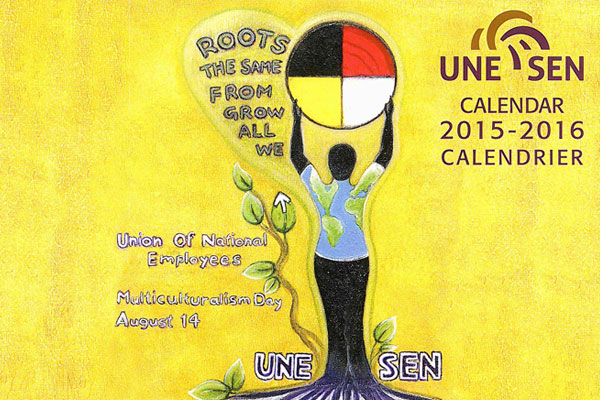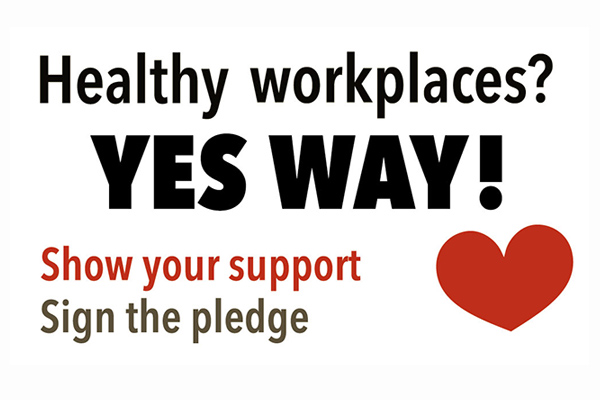
There’s no doubt that the Canadian Labour Congress’ Fairness Works campaign has helped to create a national conversation about unions’ contributions. As the labour movement’s very existence is challenged by conservative lawmakers, pitting workers against each other, the labour congress is making a simple argument: when workers thrive, we all benefit.
It’s a message that resonated with the Fédération des travailleurs et travailleuses du Québec (FTQ), the largest labour federation in Quebec. Its leaders had an earnest desire to take that same message to Quebecers, but to also go further.
“Ours is a campaign that first and foremost targets our members,” explained Johanne Deschamps, political advisor with the FTQ. “What we asked unions to do is to train their members – facilitators in the workplace – to speak with their members. It’s about engaging members in conversations about the different issues.”
On one hand, the FTQ wants union members to have a closer relationship with their union. They also want members to have a greater sense of being a part of their union and to think critically about some of the conservative policies being proposed by the federal government.
“They often tell us, the union is YOU, whereas we want to tell them, ‘no. The union is US, together.’”
The organization recognizes that anti-union sentiment isn’t something that just exists within conservative factions of our society; there are anti-union misconceptions that are deeply engrained in the minds of our very members. Through a series of short YouTube clips, showcasing young union members, the FTQ is trying to dismantle the myth-machine.
“I don’t need the union; I can figure stuff out on my own with the boss,” reads one myth.
“What if things don’t work out with the boss? What can you do? Do you have any recourse? At least, with the union, you have other steps,” answers Lydia Bouzgaren, a PSAC member, in her video.
Deschamps said they drew inspiration from unions in Belgium, which launched a similar campaign that targeted both union members and the general population.
“They created a small booklet that was titled ‘Toxic Ideas’ – in other words, problematic ideas, and how to counter that sort of thing.”
And these days, toxic ideas are abound. Unions are battling a series of attacks at all levels of government.
“The federal government and provincial governments all seem to have this attitude, whether they’re conservative or liberal, they’re telling the entire world that there’s a problem; the debt is enormous, we have no money, so we have to cut.”
“But that’s a false argument because ultimately, they’re dismantling the state.”
“The province of Quebec, the government of Quebec, isn’t going to resemble what it used to look like before. The model that we worked on for so many years is being demolished.”
Deschamps points to the much revered Quebec daycare system, which charges parents $7 a day, as an example. There’s even a union-led campaign making the case for that model to be adopted at the federal level. But now, even that standard is being threatened in Quebec.
“It shows that even our gains can be challenged at any moment. Nothing is certain anymore.”
The political advisor acknowledges that keeping track of all these cuts and their impacts is a tall task – even for those of us whose jobs involve following these things day in and day out.
“It’s hard for us; imagine how tough it is for the general public to be accorded their rightful place in those things and to be indignant. One day, they’re going to get mad, because they’ll notice that the bill just went up – and they won’t necessarily have seen it coming.”
“I look at the title of our campaign – Pour un monde plus juste (For a fairer world) – and it takes on a special importance,” concluded Deschamps, her voice getting softer and sullen. “It really takes on a special importance because I really don’t know how we’ll get a fairer world with the decisions that these governments are taking.”
We’d like to extend a heartfelt thank you to Johanne Deschamps for taking the time to talk to us about the FTQ’s campaign and the conservative ideas and actions that plague our society. If you’d like to find out more about the campaign, we urge you to visit their site, keeping in mind that the content is only available in French.










